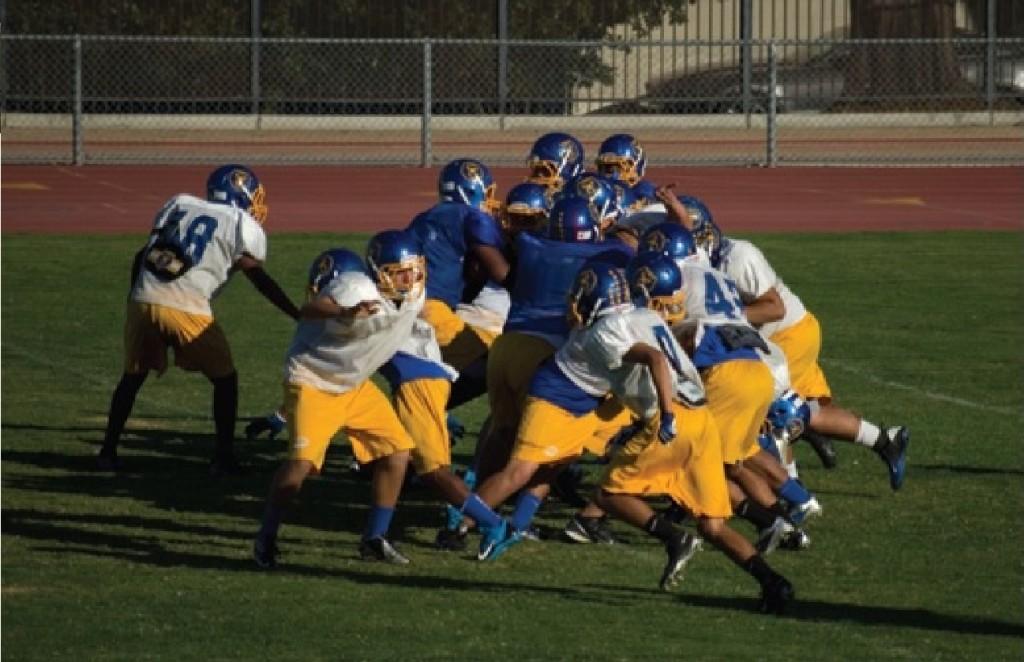Football team takes precautions against concussions on the field
Alumnus Patrick McCaffrey was running down the football field when he was hit in the head by an incoming blocker. The collision was “like a massive headache,” McCaffrey said.
“I was kind of dizzy, but I still knew where I was. I just didn’t know what had happened.”
McCaffrey had a total of three concussions throughout high school. Senior Youssef Abdelhadi has experienced ringers, which have the potential of becoming a full-blown concussion. All of these occurred during their time on the football team.
According to momsteam.com, concussions account for 15 percent of all sports related injuries. Nationwide, football is the leading sport in concussions. A concussion is a type of traumatic brain injury that is caused by a blow to the head or by something that shakes the brain. Athletes are the most likely group of individuals to get concussions.
Athletic director of football Jason Bumbaca said that a new state procedure requires all coaches to take an online class in recognizing a concussion, what to do about it, and how to treat it. In previous years, athletes at SC were required to fill out pink and white forms in order to successfully try out for a team.
As of this year, the pink and white forms have been replaced with a packet containing information about trying out for sports in general. The packet provides the policy when dealing with concussions.
“If someone gets a concussion, he has to sit out until he has been cleared by a physician,” Bumbaca said.
Most concussions occur during practice. Bumbaca said they may be due to there being more contact in practice rather than during an actual game. “During practice, you are always practicing and playing,” he said.
In a real game a person has the opportunity to sit out, but in practice a person is up and moving constantly.
Principal Gregory Shelby keeps himself informed about treating concussions. “All the coaches and I have an app on our phones that we can access to get information about concussions,” he said.
The school cannot prevent the occurrence of concussions but can take measures about the severity of them. “See the thing about concussions is that you don’t remember [what happened] and you won’t remember,” said alumnus Fredy Lopez. “You only know because people tell you what happened.”


